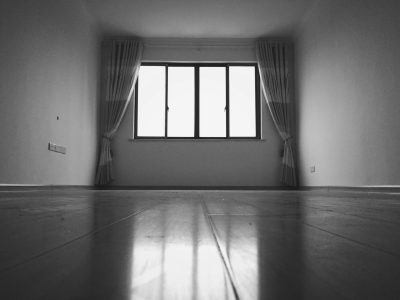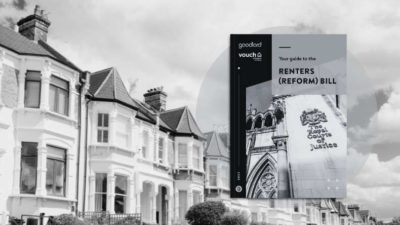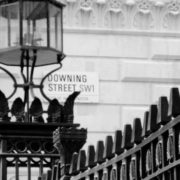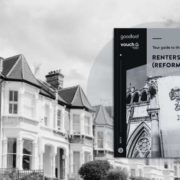There are three housing stories competing for attention at the moment.
The first is house prices, which are falling though not collapsing.
Even Rightmove’s asking price index has turned negative this month, with a fall of 1.9%, the biggest since 2018, turning annual asking price inflation negative for the first time for four years.
This gradual fall in prices has further to run, at least until the interest rate outlook becomes clearer.
The second strand is that weak demand is clearly starting to impact the housebuilders.
Crest Nicholson, the Surrey-based housebuilder, issued a profit warning, with new guidance for the financial year to October for a pre-tax profit of £50 million, down from previous guidance of around £74 million.
Its description of conditions in the market was a familiar one.
As it put it: “Against a backdrop of persistently high inflation and rising interest rates, trading conditions for the housing market have worsened during the summer of this year. While pricing has remained resilient in a market with limited supply and few distressed sellers, the economic uncertainty is deterring prospective home movers.”
There is a third element competing for attention, however, which I wanted to focus on, and it is rents.
For once, rising rents and a lack of available rental properties are getting as much attention as falling house prices and a shortage of properties to buy.
There is a good political reason for this.
With a general election coming up next year and mortgage borrowers likely to blame the government for the rise in their monthly repayments – either already or when they re-fix – the government can hardly afford discontent among renters and landlords.
That, however, is what there is.
A recent study by Savills and LSE Consulting, an offshoot of the London School of Economics, laid bare the problem in the capital.
Private renting accounts for 30% of tenures in the capital, compared with an average of 20% in the UK.
Yet the fall in available accommodation from pre-pandemic levels has been stark.
The study found that, compared with the 2017-19 average, lettings of one, two and three-bedroomed properties are down by 36%, and rents have risen by 20% from pre-pandemic levels.
Reports of large numbers of people turning up when a property becomes available, most to be disappointed, are commonplace.
The latest RICS (Royal Institution of Chartered Surveyors) residential market survey underlined the problem.
It showed a sharp rise in tenant demand in the three months to July, with a net balance of 54% of surveyors reporting an increase. In sharp contrast, landlord instructions fell further, with a balance of -30%, so a significant decline, worse than the -24% in the previous survey.
There is only one outcome to this kind of imbalance, which is sharply rising rents.
Sure enough, the balance of surveyors expecting a rise in rents over the coming three months was +63%, a record.
“Demand shows no signs of letting up, supply remains constrained and that means rents are likely to continue rising sharply despite the cost-of-living crisis,” said Simon Rubinsohn, the RICS chief economist.
Indeed, rising rents are becoming part of the inflation problem.
The latest official figures show that actual rentals paid – covering private, public and housing association properties – rose by 6.5% in the 12 months to July and are thus out of kilter with the eventual aim of getting inflation back down to 2%.
This is where it gets very circular, to the extent that rising rents help force the Bank of England to push up interest rates further, which in turn pushes rents yet higher.
What is the solution?
It is certainly not the imposition of rent controls.
A Sunday Times investigation revealed that the Scottish government’s rushed imposition of such controls had backfired, with rents up by 19% over the past 12 months, much more for private rentals than in other parts of the UK.
Landlords and letting agents are still pursuing legal challenges to the controls, but the experience suggests that there should be no rush to adopt the Scottish model elsewhere.
In the rental market, supply needs to increase.
Pantheon Macroeconomics, a consultancy, has an interesting perspective on this.
Despite widespread reports that landlords are selling up en masse, in response to higher mortgage rates, and adverse tax and regulatory changes, it does not think this is happening, and that most private landlords are in for the long haul.
What these factors are doing, however, is limiting the number of new entrants into the rental market.
While most existing landlords have dealt with the steady increase in burdens, for new ones it is daunting.
The result of this is likely to be a dearth of new entrants to replace the relatively small numbers leaving.
The supply-demand imbalance in the rental market is set to persist.
And rising rents and shortages of properties to let will continue to command headlines.

























Pantheon are clueless.
LL are selling up.
It doesn’t happen overnight.
It can easily take a year to get rid of a tenant who refuses to comply with a S21 notice.
Vacant possession is mostly required by LL to achieve best market price.
Some LL are converting to STL.
It may not seem like LL are getting out but can assure Pantheon they most definitely ARE!!
Slowly but surely.
In about a year and a half there will be a significant decline in rental stock.
LL are getting out before the RRB becomes law and before there is a Labour Govt.
Unfortunately for tenants this is the lull before the storm!
DITTO – Pantheon are clueless
I have over 200 Landlord friends and we’re ALL have been selling up over the past two years.
Thats some nearly 730 properties across Yorkshire, The Humber and North East……Areas Pantheon perhaps are not interested in monitoring sales activity….but it still has the same outcome as to whats happening across the country….Landlords pushed to their Limits by the Government and have decided ‘Its Just Not Worth the Time and Effort as a Business to Run Any Longer – there are easier ways to make a living without as much ‘Demonisation’ of Mostly Decent People working on their Pension Security!!!!
Let the Government and Shelter Etc have it their way……..We’re ALL DONE…!!!!
See You in Barbados instead of Maintaining the Back Street of Leeds and Brandon, Durham.
Oh…and NO MENTION BY THE GOVERNMENT, THE MEDIA OR CAMPAIGN GROUPS ABOUT THE ‘BILLIONS PAID IN CAPITAL GAINS TAX BY LANDLORDS WITHIN 30 days OF SELLING UP….. WHATS HAPPENING WITH THIS MONEY…..BUILDING MORE SOCIAL HOUSING PERHAPS…. I MUST BE JOKING ….RIGHT…!!!!